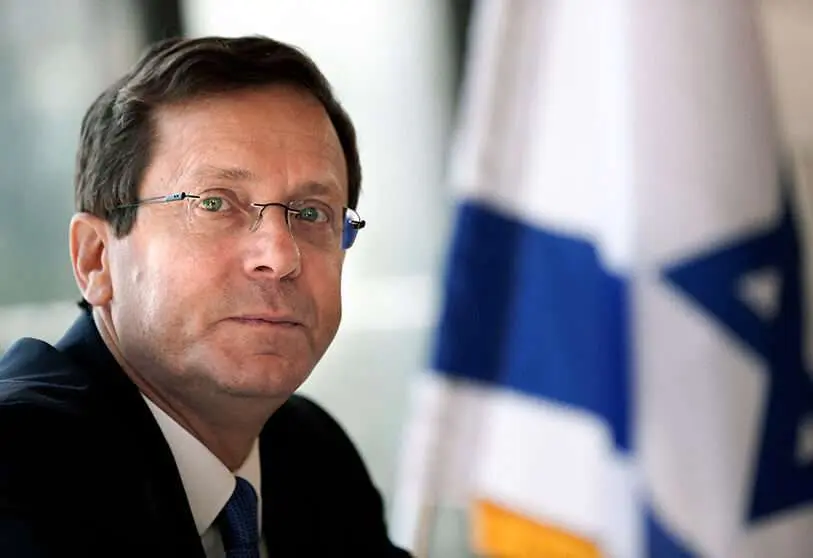Herzog, a president to rebuild bridges in Israel

The grandson of Israel's first Ashkenazi rabbi, son of Haim, former head of military espionage, ambassador to the UN and head of state, Isaac Herzog takes over the Israeli presidency this week for seven years. A position considered merely honorary, but one that could prove fundamental in healing the rift in the country forged during the successive terms of office of the now head of the opposition, Benjamin Netanyahu.
The longest-serving prime minister in Israel's history, ousted by a coalition ranging from the extreme right to the extreme left, harbours the hope that the government headed by the Naftali Bennett-Yair Lapid tandem will not last long. Supported by 60 MPs and one abstention out of the 120 seats in the Knesset, Netanyahu has made no secret of his intention to do his utmost to ensure that such a fragile alliance collapses. And sooner rather than later, if only to regain the immunity inherent to the office of prime minister, a fundamental privilege to face judges for his alleged crimes of corruption.
Netanyahu's obsession with staying at the head of the government no matter what the cost led him to decline the possibility of leaving the executive branch and running for head of state, which has made it easier for the post to fall to Isaac Herzog, who won the support of 87 of the 120 members of Parliament, and who after his appointment promised to "effectively be the president of all Israelis".
As historian and Arabist Jean-Pierre Filiu notes in his regular blog, 'never has the gap between Israel's four tribes', defined by former president Reuven Rivlin as 'the seculars, the religious Zionists, the Orthodox and the [Israeli] Arabs', been so severe. Indeed, Netanyahu has gone to great lengths during his last twelve consecutive years in office to maintain the support of the ultra-Orthodox. This policy has had consequences, as the powerful Jewish community in the United States saw Netanyahu leaning on its most fundamentalist elements, causing among other things a resurgence of anti-Semitism in Israel's largest and most important ally and financier.
At home, Netanyahu's divisive legacy would also require some cauterisation. In principle, this will not happen, as the current prime minister, Naftali Bennett, and his influential finance minister, Avigdor Lieberman, both former ministers and 'disciples' of Netanyahu himself, maintain a strong anti-Arab discourse. This is why analysts such as Filiu believe it is the cause of the ambiguous position of Raam's Palestinian Islamists, who support the current government in parliament, but without a seat in the Council of Ministers.
Wielding his institutional authority and capacity for dialogue, the new head of the Israeli state, a former director of the Jewish Agency, which is especially responsible for organising immigration to Israel, has given himself the priority task of calming tensions with the Jewish diaspora, which first involves reducing the climate of political and social confrontation between the four tribes enunciated by his predecessor.
And, insofar as Isaac Herzog has also been head of the Labour Party, now considerably diminished, he will be able to encourage - his prerogatives do not allow for more - the leaders of the parties that sit in the Knesset to relaunch a renewed peace process with the Palestinians. Netanyahu chose to ignore it while consolidating a relentless policy of fait accompli. But ignoring a problem does not mean that it does not exist and therefore does not require a solution, which is all the more difficult to achieve when the consequences of these faits accomplis can be made irreversible peacefully.

